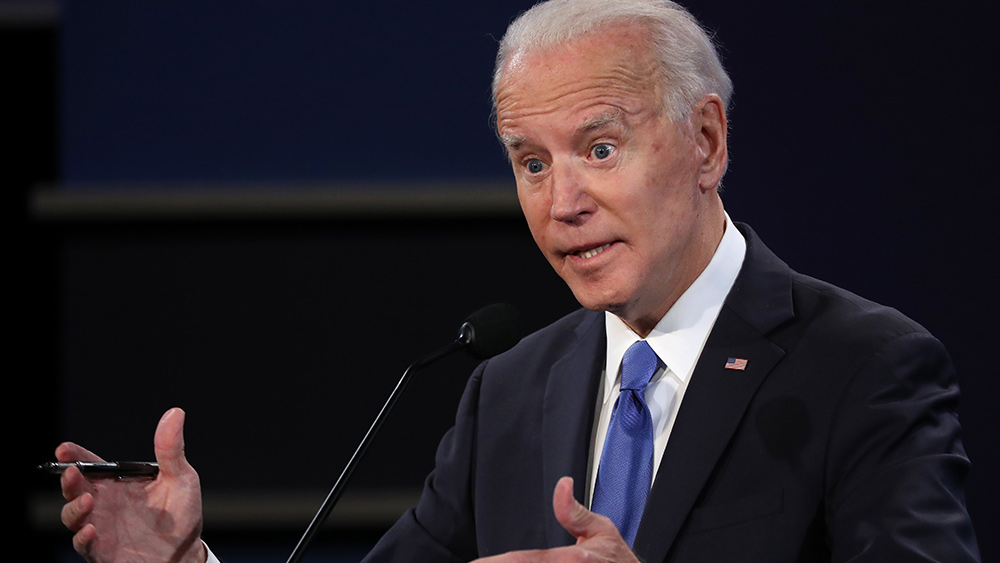India announces determined plan to “eliminate” Bitcoin… cryptos tumble
02/06/2018 / By Ethan Huff

Yet another country, India, has announced plans to try to squelch the growth of Bitcoin. As reported by Zero Hedge, the government of the seventh largest country in the world now admits that it wants to eliminate the cryptocurrency entirely, as it doesn’t see the digital currency as acceptable.
In a recent announcement, India’s finance minister, Arun Jaitley, told lawmakers in New Delhi that his country believes in the concept of cryptocurrency, and wants to embrace the blockchain concept in a general sense. But it does not want to see Bitcoin adopted by its people, and is thus taking action to try to bar its use.
“The government does not consider cryptocurrencies legal tender or coin and will take all measures to eliminate use of these crypto-assets in financing illegitimate activities or as part of the payment system,” Jaitley is quoted as saying. “The government will explore use of blockchain technology proactively for ushering in digital economy.”
As of this writing, the U.S. dollar value of Bitcoin has dropped below $7,000 per “coin” – a more than 65 percent drop from its all-time high of around $20,000 per coin. Roughly one year ago, Bitcoin hovered in the $1,000 per coin range, illustrating a pattern of wild volatility that some say will eventually lead to its undoing.
News about India’s plans to restrict the use of Bitcoin has further caused the value of the cryptocurrency to plummet, as it’s already down more than 30 percent so far in 2018. Many are now speculating as to when Bitcoin will reach its bottom, and whether or not it will once again see the types of dramatic increases it saw in 2017.
Reserve Bank of India raids Bitcoin seller, issues warning against buying and trading of crypto
Despite having previously attempted, and failed, to control capital outflows via gold, India’s government is once again attempting to restrict migration to new forms of currency like Bitcoin. Just last month, in fact, government regulators in India raided a seller of Bitcoin and issued a warning to citizens against buying and selling virtual currencies.
Following this incident, several cryptocurrency exchanges in India suspended their operations out of fear that they might be targeted for alleged “money laundering” and “financial terrorism” – even though all they were doing was facilitating the buying and selling of Bitcoin via digital online exchanges.
Further, India’s government has established a panel to determine how the country plans to handle virtual currencies moving forward. This has put enormous strain on the owners of the country’s many crypto exchanges, as they remain unsure about whether or not their government might try to go after them.
“After today’s announcement, people are getting scared,” stated Anshul Vashist, a New Delhi-based support manager at the cryptocurrency exchange Coinsecure. “We have seen some dumping of bitcoins,” he added, noting that the exchange currency facilitates a volume of about 100 coins per day.
To make matters worse, United States regulators recently issued subpoenas against an American cryptocurrency exchange known as Bitfinex over allegations that the company was artificially propping up the price of Bitcoin by issuing its own proprietary cryptocurrency known as “Tether.”
Much like the recent scandal with BitConnect, Bitfinex is being accused of creating a Ponzi scheme to bilk large amounts of money from investors. Users of the platform were encouraged to invest their money into Tether, only to immediately use that Tether to purchase Bitcoin, which some say led to Bitcoin prices to soar.
On the other hand, concerns that South Korea, one of the world’s largest crypto markets, might shut down Bitcoin trading were put to rest recently as the nation’s regulators announced that they would be doing no such thing.
Sources for this article include:
Submit a correction >>
Tagged Under:
banned, bitcoin, bitconnect, Bitfinex, blockchain, cryptocurrency, exchanges, Glitch, government, government regulation, India, market crash, regulation, South Korea
This article may contain statements that reflect the opinion of the author
RECENT NEWS & ARTICLES
COPYRIGHT © 2017 GOVTSLAVES.COM
All content posted on this site is protected under Free Speech. GovtSlaves.com is not responsible for content written by contributing authors. The information on this site is provided for educational and entertainment purposes only. It is not intended as a substitute for professional advice of any kind. GovtSlaves.com assumes no responsibility for the use or misuse of this material. All trademarks, registered trademarks and service marks mentioned on this site are the property of their respective owners.




















